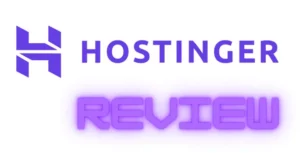Ever considered creating your own personal or small business website but found it overwhelming to create a full-blown website? Enter one-page websites! one-page websites are a streamlined and effective way to communicate a message or showcase a product or service succinctly without going through the hassle of creating a full-blown website. They’re particularly beneficial for individuals and businesses looking to establish a strong online presence without the complexity of a multi-page site. In this post I’ll explain what one-page websites are and mention 6 one-page websites builders to use to achieve your goal fast!
Introduction What are One-Page Websites?
One-page websites offer all the necessary information on a single, long-scrolling page. This design approach focuses on simplicity and user experience, allowing visitors to find everything in one place without navigating through multiple pages. Ideal for storytelling, portfolios, product launches, and event promotions, one-page websites can effectively guide visitors through a narrative or presentation, leading to a stronger impact and a more memorable experience.
Benefits of One-Page Websites
- Simplicity: They’re straightforward to navigate, ensuring users find what they need without getting lost.
- Concentration: Focuses the visitor’s attention on the most important content.
- Responsive Design: Often easier to make responsive across various devices.
- Storytelling: Excellent for guiding visitors through a narrative or specific process.
Getting Started
Creating a one-page website starts with defining the purpose and audience. Whether showcasing a portfolio, launching a product, or promoting an event, the key is to organize content in a logical and engaging manner. Tools like Wix, Squarespace, and WordPress with Elementor make it accessible for non-techies to create beautiful, functional one-page sites. By drawing inspiration from successful examples that you can find on the Internet, you can design a one-page website that effectively communicates your message and captivates your audience.
There are some tools available that make the creating of one-page websites a lot easier and with much less technical knowledge requirements. Next we will introduce and compare some of the more popular choices that are available.
Quick comparison of Top 6 One-Page website Builders
Wix
Wix is a comprehensive website builder that offers a highly intuitive drag-and-drop interface, making it easy for users to design websites without any coding knowledge. It provides a vast selection of templates, including many optimized for one-page designs. Wix is versatile, supporting a wide range of websites from portfolios to small business sites.
Additional Features: Wix also includes Wix ADI (Artificial Design Intelligence), which can automatically create a website for you based on a few simple questions about your needs and preferences. For more advanced users, Wix offers Velo by Wix, a full development platform to customize web applications with scripting and database management.
Pros:
- User-friendly: Extremely easy to use, with a drag-and-drop editor that allows for extensive customization.
- Template Variety: Offers a wide range of templates suited for different industries and purposes.
- Advanced Features: Supports e-commerce, SEO tools, and third-party app integrations.
Cons:
- Site Speed: Websites can sometimes load slowly, especially if they contain a lot of media content.
- Template Lock: Once you choose a template and go live, you cannot switch templates without redesigning your site.
Squarespace
Squarespace is known for its stunning, professionally designed templates that offer a modern look and feel. It’s ideal for creatives and small business owners looking for a visually impressive online presence. Squarespace’s editor is slightly less intuitive than Wix’s but offers greater control over design elements.
Additional Features: Beyond aesthetics, Squarespace includes built-in tools for SEO, e-commerce, and social media integration, making it a robust platform for businesses aiming to grow their online presence. It also offers a comprehensive set of blogging tools, appealing to content creators and bloggers.
Pros:
- High-Quality Design: Offers some of the best templates on the market, with attention to detail and mobile responsiveness.
- All-in-One Platform: Integrates various features like e-commerce, analytics, and marketing tools seamlessly.
- Customer Support: Provides 24/7 customer support and a wealth of help guides and tutorials.
Cons:
- Learning Curve: The platform can be less intuitive for beginners, requiring some time to learn.
- Price: Generally more expensive than some competitors, especially for e-commerce features.
Strikingly
Strikingly specializes in the creation of one-page websites, making it a go-to for users who want to establish an online presence quickly and efficiently. It’s designed to be user-friendly, allowing for the development of websites within minutes, focusing on simplicity and ease of use.
Additional Features: Strikingly offers a “Simple Store” feature for selling products directly from your one-page site, making it a good starting point for small e-commerce projects. It also includes a blog section, allowing users to add a blog to their one-page site.
Pros:
- Simplicity: Very easy to set up and maintain, ideal for beginners.
- Mobile Optimization: Ensures that one-page websites look great on all devices.
- Cost-Effective: Offers a free plan and affordable premium plans.
Cons:
- Limited Scalability: More suitable for simple sites; larger sites or those requiring extensive functionality might find it limiting.
- Customization Limits: While easy to use, it offers less customization than more comprehensive platforms like Wix or Squarespace.
Weebly
Weebly is a user-friendly website builder with a drag-and-drop editor, known for its simplicity and effectiveness. It offers a range of templates, including options for one-page websites. Weebly is particularly appealing for small businesses and online stores, thanks to its integrated e-commerce capabilities.
Additional Features: Beyond basic website building, Weebly provides advanced e-commerce features, SEO tools, and options for custom HTML/CSS, giving users more control over their site’s design and functionality. It also offers a mobile app, allowing users to manage their site on the go.
Pros:
- Ease of Use: Very straightforward platform with a clean, intuitive interface.
- E-commerce Strength: Strong e-commerce features, even in some of the lower-priced plans.
- Marketing Tools: Includes access to a suite of marketing tools to help promote your website.
Cons:
- Design Flexibility: Limited customization options compared to other platforms.
- Template Quality: Templates are not as modern or extensive as those offered by Squarespace.
Leadpages
Leadpages is focused more on building high-converting landing pages and websites, making it a great tool for businesses focused on marketing outcomes. It features a drag-and-drop builder and comes with a wide array of conversion-focused templates, including those suitable for one-page websites.
Additional Features: It stands out for its focus on optimizing conversion rates, offering built-in conversion tools like opt-in forms, pop-ups, and alert bars. Leadpages also integrates with a variety of marketing and analytics tools, allowing for sophisticated campaign tracking and optimization.
Pros:
- Conversion Optimization: Tailored for creating landing pages that convert visitors into leads or customers.
- Integrations: Extensive integration options with marketing, analytics, and other tools.
- Ease of Use: User-friendly interface that doesn’t require technical skills.
Cons:
- Focus on Landing Pages: While excellent for conversion-focused pages, it may not be as versatile for other types of websites.
- Cost: Can be expensive for small businesses or individuals just starting out, especially for access to more advanced features.
Carrd
Carrd is a simple, lightweight builder for one-page sites. It’s designed to be incredibly easy to use, making it perfect for personal profiles, landing pages, and small projects. Carrd offers both free and premium plans, with premium features including advanced site analytics, custom domain support, and no Carrd branding.
Additional Features: Despite its simplicity, Carrd doesn’t skimp on features. It supports forms, images, videos, and even basic animations. The platform is optimized for speed and performance, ensuring that sites load quickly on all devices.
Pros:
- Simplicity and Speed: Extremely easy to use, with a focus on speed and efficiency.
- Affordability: Offers a generous free plan and very affordable premium options.
- Responsive Design: Ensures that websites are automatically optimized for any device.
Cons:
- Limited Functionality: Best suited for simple, static websites rather than complex sites with dynamic content.
- Fewer Templates: Offers fewer templates and design options compared to more comprehensive platforms like Wix and Squarespace.
Each of these website builders offers unique advantages and may be better suited to different types of users and projects. By considering the pros and cons, users can choose the platform that best meets their specific needs for creating a one-page website.
Conclusion
One-page websites offer a streamlined and focused approach to web design, catering to businesses, individuals, and projects that wish to convey their message succinctly without the navigational complexity of multi-page sites. The website builders discussed—Wix, Squarespace, Strikingly, Weebly, Leadpages, and Carrd—each provide unique features and functionalities tailored to different needs, from visually stunning portfolios to conversion-optimized landing pages. Whether you’re a creative professional looking to showcase your work, a business aiming to highlight your offerings, or an individual creating a personal project, there’s a website builder out there that can help you achieve your goals with ease and efficiency.
Choosing the right platform depends on several factors, including the level of customization required, the specific features you need, your budget, and the amount of time you’re willing to invest in website creation and maintenance. For those seeking extensive design options and customization, Wix and Squarespace stand out as comprehensive solutions. Strikingly and Carrd, on the other hand, offer simplicity and speed for users who prefer to get their site up and running with minimal fuss. Weebly is a strong contender for e-commerce projects, while Leadpages excels in creating landing pages designed to convert. By carefully considering the pros and cons of each option, you can select the best one-page website builder to create an online presence that not only meets your immediate needs but also supports your long-term growth and success.
Check also our blog post about Mastering High-Converting Landing Pages to Transform Your Online Marketing Impact




